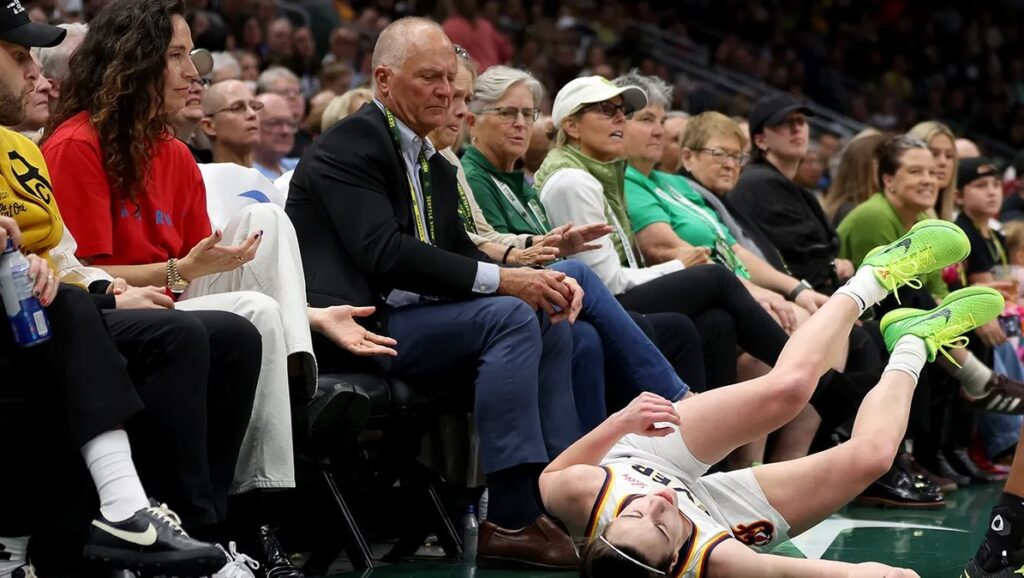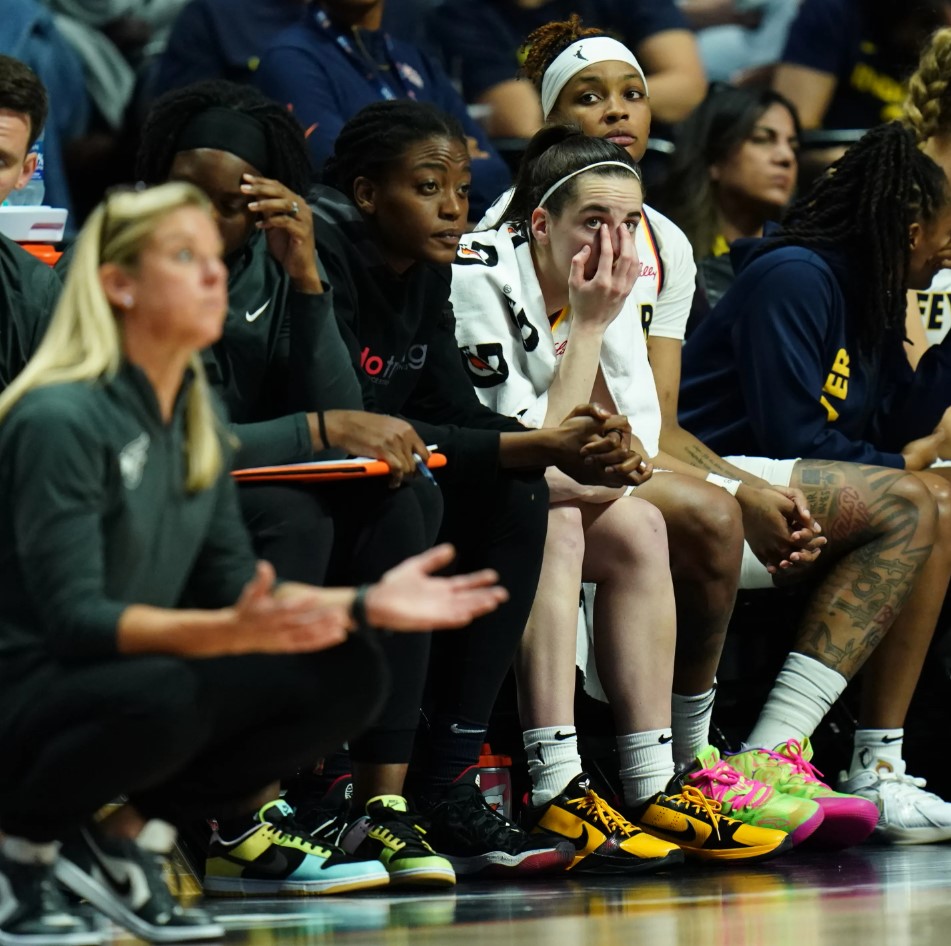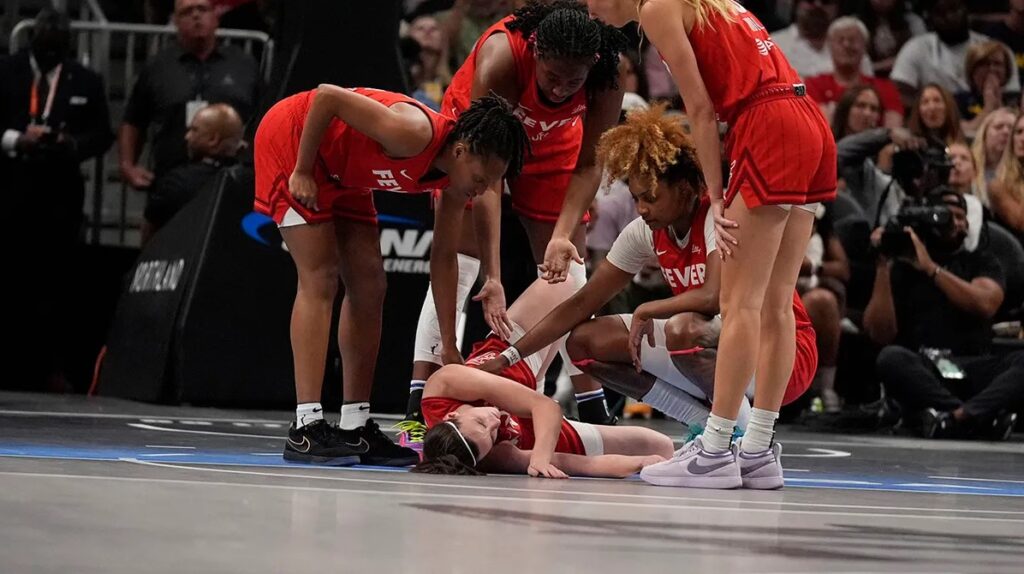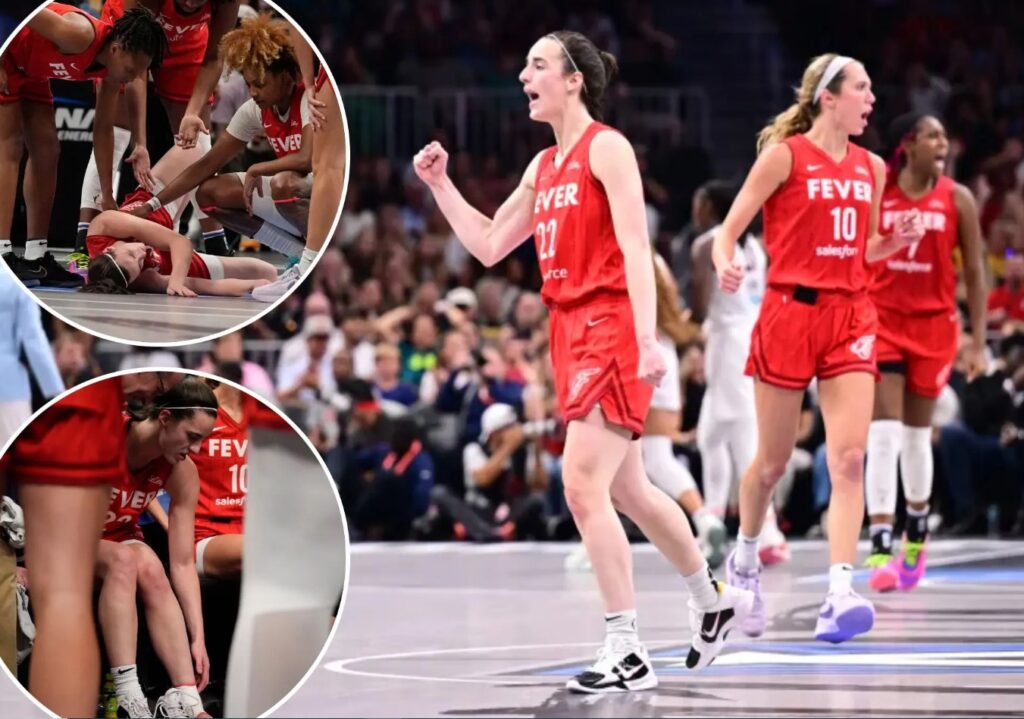Caitlin Clark’s Absence Casts Shadow Over WNBA Commissioner’s Cup Final as Indiana Fever Face Uphill Battle
The Indiana Fever’s championship dreams suffered a devastating blow on Tuesday evening when the organization officially announced that superstar guard Caitlin Clark would be unable to participate in the highly anticipated WNBA Commissioner’s Cup final against the Minnesota Lynx at Target Center. Clark, who has been struggling with a persistent groin injury that has already forced her to miss two consecutive games, was initially listed as questionable for the marquee matchup before team medical staff ultimately determined that the risk of further injury outweighed the potential benefits of her participation in this crucial contest.

The timing of Clark’s absence could not be more problematic for the Fever, as they prepare to face the formidable Minnesota Lynx, who enter the championship game with an impressive 14-2 record and the distinction of being the defending Commissioner’s Cup champions from the previous season. The Fever, currently sitting at 8-8 and making their first appearance in the Commissioner’s Cup final since the in-season tournament’s inception in 2021, will now be forced to navigate this monumental challenge without their most dynamic and influential player, whose presence on the court has been integral to their success throughout the campaign.
Clark’s injury history this season has been particularly concerning for both the player and the organization, as she previously missed five games earlier in the year due to a quad injury that disrupted her rhythm and the team’s offensive flow during a critical stretch of the regular season. The current groin issue represents a different but equally troublesome physical setback that has now cost her three consecutive games, including this championship opportunity that carries significant financial and competitive implications for the entire franchise and its dedicated fanbase.

Despite the setback, there were encouraging signs during Monday’s practice session at the Indiana facility, where head coach Stephanie White confirmed that Clark was able to participate in limited, non-contact drills that suggested her injury was potentially manageable for game action. However, Tuesday’s media-accessible practice session revealed the harsh reality of her situation when Clark was notably absent from the court, leading to speculation about her availability that was ultimately resolved when the team made their official announcement regarding her status for the evening’s championship contest.
The irony of Clark’s absence is particularly striking given the remarkable individual recognition she received on the very same day, as she was announced as the leading vote-getter in fan balloting for the upcoming WNBA All-Star Game and was subsequently named both a starter and team captain for the prestigious event scheduled for July 19 in Indianapolis. This dual announcement of personal triumph and team disappointment encapsulates the complex nature of professional athletics, where individual accolades and team success often intersect in unexpected and sometimes contradictory ways that highlight the unpredictable nature of competitive sports.

The financial stakes of Tuesday night’s championship game add another layer of significance to Clark’s absence, as the winning team will be awarded a substantial prize pool of $500,000 that represents a meaningful financial windfall for players whose salaries, while improving, still pale in comparison to their male counterparts in professional basketball. This monetary incentive, combined with the prestige of winning the Commissioner’s Cup, makes Clark’s inability to contribute to her team’s championship aspirations all the more frustrating for both the player and the organization that has built much of its recent success around her exceptional talents and marketability.
While the Fever grapple with the immediate challenge of competing without their star player, the broader WNBA community continues to address serious issues surrounding player safety and security, as evidenced by the Chicago Sky’s groundbreaking partnership with Moonshot, a technology company specializing in combating online harassment and threats. This partnership, announced coincidentally on the same day as Clark’s injury news, underscores the growing concerns about the safety and well-being of female athletes who face unprecedented levels of online abuse and harassment as the popularity of women’s sports continues to surge across various platforms and demographics.

The Moonshot partnership gained particular relevance when the company revealed its role in helping federal authorities track and ultimately arrest a 55-year-old Indianapolis man who had been stalking Clark through a series of increasingly concerning online posts that alternated between romantic obsession and violent threats. Moonshot CEO Vidhya Ramalingam explained that their sophisticated monitoring systems were able to identify and flag the abhorrent behavior patterns that eventually led to the stalker’s arrest in January, demonstrating the critical importance of proactive measures to protect athletes from digital harassment and real-world threats.
The broader implications of online harassment in women’s sports cannot be understated, particularly when considering Moonshot’s research indicating that 92% of women in public life experience some form of online abuse, with 31% of these incidents being sexual in nature. Chicago Sky co-owner and operating chairman Nadia Rawlinson emphasized that female athletes, especially women of color and members of the LGBTQIA+ community, face disproportionately high levels of harassment and threats that have unfortunately increased alongside the growth of women’s sports, sports betting activities, and the proliferation of artificial intelligence technologies that can amplify and accelerate harmful content.
As the Indiana Fever prepare to take the court without their cornerstone player, they face not only the immediate challenge of competing against a superior opponent but also the broader reality of operating in an environment where success brings both celebration and scrutiny, opportunity and threat, triumph and vulnerability in equal measure.